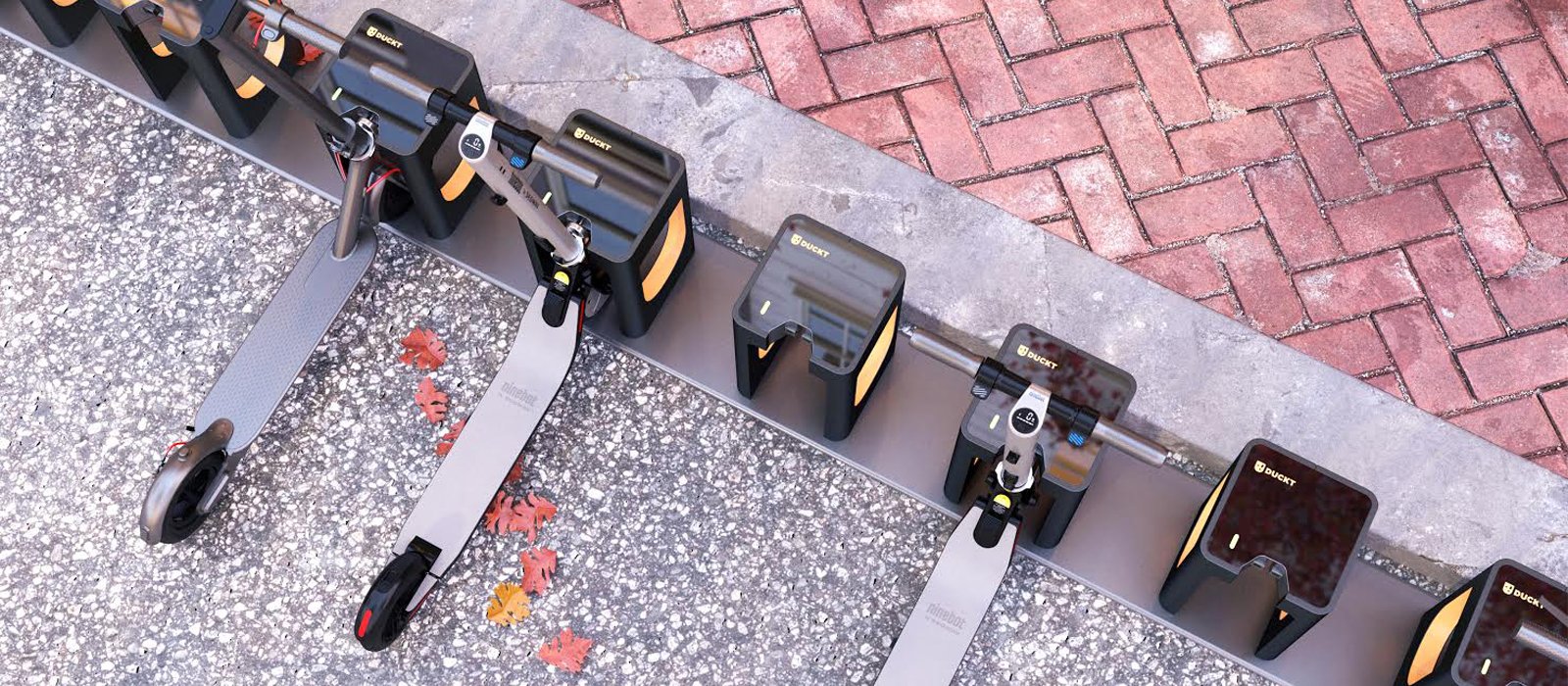Three short years from now diesel powered cars will no longer be permitted in Paris. By 2024, petrol powered cars will be a thing of the past.
On collaboration with sustainable energy innovation engine EIT InnoEnergy, Micro mobility infrastructure provider DUCKT has just announced that they’ve been awarded a pilot project from the Paris Municipality to install 150 dock, lock and charge points across the Rive Gauche (13th arrondissement), to be deployed in Q2 of this year.
The aim of the projects is to demonstrate how universal charging points can accelerate the use of micro mobility and reduce climate impact on the city.
While it might be a pandemic effect, research from Lime demonstrated a “15% increase in the number of electric bike and scooter trips in the city and a 65% in distance travelled from February – June 2020”. Either way, it’s clear that Paris is serious about cutting the car out of the city.
DUCKT’s offering helps the Municipality and e-mobility users organise public space, lower operation costs and provide a simple, secure universal charge station. And with an added benefit, the adaptable solution can be plugged into billboards, bus stations and street lighting to provide a power source.
“Paris was the ideal city to demonstrate the power of our solution. With nearly 15,000 electric scooters on the streets, policies are going to keep moving towards accelerated deployment of micro mobility. This initiative supports the mayor's desire to reduce the use of cars in town to a minimum and the city’s ambitious "15-minute city" project which aims to give Parisians the full use of their streets back,” adds Marc-Antoine Réol, Country Manager France at DUCKT. “EIT InnoEnergy’s intimate knowledge of the French market, commercial support and years of expertise in sustainable energy entrepreneurship played an essential role in our ability to pursue this opportunity.”



Would you like to write the first comment?
Login to post comments